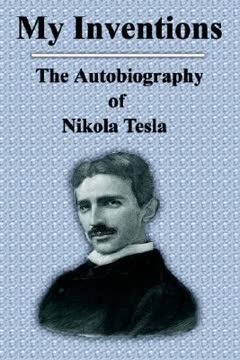Key Takeaways
1. Principles of Service: The Foundation of Business Success
The primary object of a manufacturing business is to produce, and if that objective is always kept, finance becomes a wholly secondary matter that has largely to do with bookkeeping.
Service over profit. Ford's business philosophy centered on the idea that a company's primary goal should be to serve its customers and society, rather than solely pursuing profits. This approach led to the development of high-quality, affordable products that met real needs.
Long-term vision. By focusing on service, Ford believed businesses could achieve sustainable growth and profitability. This contrasted with the short-term profit-seeking mentality prevalent in many industries at the time. Ford's emphasis on service included:
- Continuously improving product quality
- Reducing prices to make products more accessible
- Investing in employee welfare and fair wages
- Prioritizing customer satisfaction over immediate financial gain
2. Innovation and Continuous Improvement Drive Progress
There is no finality in business. I believe that there is hardly a single operation in the making of our car that is the same as when we made our first car of the present model.
Constant evolution. Ford's success was built on a relentless pursuit of innovation and improvement. This mindset permeated every aspect of the business, from product design to manufacturing processes.
Embracing change. Ford encouraged his employees to challenge established methods and seek better solutions. This culture of innovation led to numerous breakthroughs:
- Development of the moving assembly line
- Standardization of parts and processes
- Improved materials and manufacturing techniques
- Vertical integration of production
The company's commitment to continuous improvement allowed it to stay ahead of competitors and consistently deliver better products at lower prices.
3. Efficient Production Methods Reduce Costs and Increase Accessibility
The whole secret of a successful factory is having the right machines, the right processes, and the right materials all at the right time—and then having these component parts assembled in the quickest and most efficient manner.
Streamlined production. Ford revolutionized manufacturing by implementing efficient production methods that dramatically reduced costs and increased output. This approach made automobiles accessible to a much wider market.
Key elements of Ford's production philosophy included:
- Standardization of parts and processes
- Moving assembly line to increase efficiency
- Vertical integration to control costs and quality
- Elimination of waste in all forms (time, materials, motion)
These innovations allowed Ford to continually lower prices while improving quality, making the automobile a staple of American life.
4. Fair Wages and Profit Sharing Benefit Everyone
There is no reason why a man who is willing to work should not be able to work and to receive the full value of his work. There is equally no reason why a man who can but will not work should not receive the full value of his services to the community.
Mutual prosperity. Ford believed that paying fair wages and sharing profits with employees was not only morally right but also good for business. This philosophy led to the implementation of the $5 workday, which was revolutionary at the time.
Benefits of Ford's wage policy:
- Increased employee loyalty and productivity
- Reduced turnover and training costs
- Created a larger market for Ford products
- Improved overall economic conditions in the community
By treating employees as partners in the business, Ford created a more stable and prosperous workforce, which in turn contributed to the company's success.
5. The Importance of Simplicity in Design and Management
Simplicity has always been a mark of real genius. Good designs are based on logical fundamentals.
Elegant solutions. Ford emphasized simplicity in both product design and business management. This approach led to more efficient operations and products that were easier to manufacture, use, and maintain.
Key aspects of Ford's simplicity principle:
- Streamlined product design (e.g., Model T)
- Reduced complexity in manufacturing processes
- Elimination of unnecessary bureaucracy
- Clear communication of goals and expectations
By focusing on simplicity, Ford was able to create products that were both affordable and reliable, while also maintaining a lean and efficient organization.
6. Financial Independence and the Dangers of Speculation
Borrowing for expansion is one thing; borrowing to make up for mismanagement and waste is quite another.
Self-reliance in finance. Ford strongly believed in maintaining financial independence and avoiding unnecessary debt. This approach allowed the company to weather economic downturns and invest in long-term growth.
Ford's financial principles included:
- Reinvesting profits into the business
- Avoiding speculative investments
- Maintaining substantial cash reserves
- Financing expansion through increased efficiency rather than borrowing
By adhering to these principles, Ford was able to maintain control of his company and pursue his vision without interference from outside financial interests.
7. Education Through Practical Experience and Self-Reliance
The object of education is not to fill a man's mind with facts; it is to teach him how to use his mind in thinking.
Learning by doing. Ford believed that practical experience was more valuable than traditional academic education. This philosophy influenced both his approach to employee training and his views on education in general.
Key aspects of Ford's educational philosophy:
- Emphasis on hands-on learning and problem-solving
- Apprenticeship programs and on-the-job training
- Encouraging self-reliance and independent thinking
- Valuing practical skills over theoretical knowledge
Ford's approach to education aimed to produce workers and citizens who were capable of adapting to new challenges and contributing to society in meaningful ways.
8. The Role of Transportation in Economic Development
The world cannot go on without banking facilities. We have to have money. We have to have credit. Otherwise the fruits of production could not be exchanged. We have to have capital.
Infrastructure as catalyst. Ford recognized the crucial role of transportation in economic development and social progress. His work in the automotive industry was driven by a desire to improve mobility and connectivity.
Impact of improved transportation:
- Increased economic opportunities for rural communities
- Facilitated the growth of suburbs and new urban centers
- Enabled more efficient distribution of goods and services
- Expanded personal freedom and mobility for individuals
Ford's vision of affordable transportation contributed to significant social and economic changes in the early 20th century.
9. Philanthropy Should Enable Self-Sufficiency, Not Dependency
I have no patience with professional charity, or with any sort of commercialized humanitarianism. The moment human helpfulness is systematized, organized, commercialized, and professionalized, the heart of it is extinguished, and it becomes a cold and clammy thing.
Empowerment over handouts. Ford believed that true philanthropy should focus on helping people become self-sufficient rather than creating dependency. This philosophy influenced his approach to charitable giving and social initiatives.
Ford's principles of effective philanthropy:
- Providing opportunities for education and skill development
- Creating jobs and economic opportunities
- Encouraging personal responsibility and initiative
- Avoiding paternalistic or condescending approaches to charity
By focusing on empowerment rather than mere assistance, Ford aimed to create lasting positive change in communities and individuals' lives.
Last updated:
FAQ
What's My Life And Work about?
- Autobiographical insights: The book combines Henry Ford's personal journey with his business philosophy, detailing the establishment of the Ford Motor Company.
- Manufacturing focus: Ford emphasizes efficient manufacturing, advocating for simplicity and waste elimination in production processes.
- Economic and social commentary: It discusses broader economic principles, including the relationship between wages, work, and societal prosperity.
Why should I read My Life And Work?
- Learn from a pioneer: Gain insights from one of the most influential figures in American industry, offering lessons on innovation and entrepreneurship.
- Understand business philosophy: Ford shares his perspective on business, emphasizing service over profit and fair treatment of workers.
- Historical context: The book provides a glimpse into the early 20th-century industrial landscape, valuable for understanding modern business evolution.
What are the key takeaways of My Life And Work?
- Service over profit: Ford argues that businesses should prioritize serving customers and improving their lives over financial gain.
- Efficiency in production: He highlights the importance of reducing waste and improving processes to deliver true service.
- Wages and worker dignity: Ford believes in fair wages, emphasizing personal responsibility in business for the welfare of the country.
What are the best quotes from My Life And Work and what do they mean?
- "Power and machinery...": Ford believes industry should enhance human life, not just generate wealth.
- "The natural thing to do is to work.": He values hard work, suggesting prosperity comes from honest effort.
- "If you expect a man...": Ford highlights the importance of fair wages for a productive workforce.
How does Henry Ford define good business in My Life And Work?
- Focus on service: Good business prioritizes serving customer needs and improving their lives over making profits.
- Sustainable practices: Ford advocates for fair compensation, stating that low-wage businesses are insecure.
- Community impact: Successful businesses should contribute positively to the community, fostering economic growth.
What is Ford's perspective on wages in My Life And Work?
- Minimum wage philosophy: Ford established a minimum wage of six dollars a day, reflecting his commitment to fair compensation.
- Wages as a partnership: He views wages as a partnership between employers and employees, emphasizing mutual responsibility.
- Impact on productivity: Ford argues that higher wages lead to increased productivity, as valued workers invest more effort.
What does Ford say about the relationship between business and government in My Life And Work?
- Government as a servant: Ford believes government should serve the people, not the other way around.
- Self-reliance in business: He emphasizes that success should not rely on government intervention.
- Critique of legislation: Ford suggests laws do little to solve economic problems, advocating for individual effort and innovation.
How does Ford approach innovation in My Life And Work?
- Continuous improvement: Ford advocates for constant innovation, believing everything can be done better.
- Experimentation and learning: He emphasizes the importance of experimenting with new ideas to improve products and processes.
- Simplicity in design: Innovation should focus on simplicity and functionality, creating easy-to-use products.
What role does community play in Ford's business philosophy in My Life And Work?
- Community welfare: Ford sees business as a means to improve the community, highlighting social responsibility.
- Partnership with workers: He promotes a collaborative approach, emphasizing the partnership between employers and employees.
- Economic growth: Ford links business success to community well-being, stating high wages lead to prosperity.
How does Ford's experience shape his views on business in My Life And Work?
- Lessons from failure: Ford uses early business failures as learning experiences to shape future strategies.
- Practical knowledge: His hands-on experience in mechanics informs his business approach, valuing comprehensive understanding.
- Vision for the future: Ford's experiences drive his vision for businesses that serve community needs and prioritize worker well-being.
What is Ford's view on machines and men in My Life And Work?
- Machines for efficiency: Ford sees machines as essential for increasing productivity and reducing labor intensity.
- Human element: Success relies on people operating machines, advocating for a balance between technology and human labor.
- Training and skill development: Ford believes in training workers to maximize potential, emphasizing quick skill acquisition.
How does Ford define the relationship between wages and productivity in My Life And Work?
- Fair wages increase productivity: Ford argues that fair wages lead to a more productive workforce.
- Wages as investment: He views wages as an investment in workers, leading to better performance and loyalty.
- Economic prosperity: Ford links fair wages to broader economic prosperity, suggesting they benefit society as a whole.
Review Summary
My Life and Work receives high praise for Ford's visionary business philosophy focused on service over profit. Readers appreciate his innovative ideas on manufacturing, worker conditions, and social responsibility. Many find the book inspiring and full of timeless wisdom, though some note Ford's controversial views. Critics highlight his extreme work ethic and antisemitism. The book is lauded for its practical business advice, insights into early 20th century industry, and Ford's unique perspective on economics and society. Overall, it's considered an essential read for entrepreneurs and history enthusiasts.
Similar Books









Download PDF
Download EPUB
.epub digital book format is ideal for reading ebooks on phones, tablets, and e-readers.




